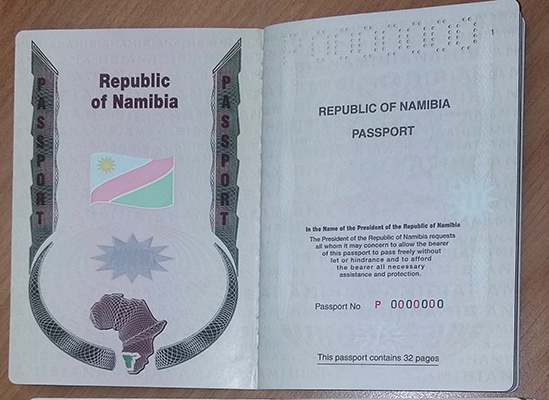THE home affairs ministry on Friday launched a biometric passport also known as the e-passport with enhanced security features.
A biometric or e-passport has a microchip that contains a person’s identity details and information as required by all border control authorities.
Nehemia Nghishekwa, acting permanent secretary in the ministry, launched the e-passport in Windhoek on Friday.
“A biometric passport is a highly secured travel document or passport with a chip for document security enhancement, rendering it difficult to forge,” he said.
The e-passport will be issued as from today, while the current machine-readable passports in circulation will still be in use until they outlive their five-year lifespan.
It will be available to ordinary, diplomatic and official passport holders.
Nghishekwa said the ministry will still issue the brown passport, also known as the emergency travel document, until further notice.
The e-passport will cost N$160 for the time being, until government gazettes the new fee of N$200, which was approved by Cabinet last year.
The new passport places Namibia amongst countries which are issuing biometric passports as per the requirements of the International Civil Aviation Organisation (Icao).
Currently, about 13 African countries are issuing biometric passports.
According Medium Term Expenditure Framework projections, the ministry expected to make about N$13,2 million from the issuing of passports in 2017/18.
Nghishekwa on Friday could, however, not confirm how much the project had cost government, nor disclose the name of the company that got the tender to provide e-passport services.
He said he would not diclose the name of the company due to security reasons.
“Unfortunately […] when you enter into an agreement for these kinds of manufacturing for security equipment or papers, you enter into non-disclosure clauses, therefore we can’t disclose that kind of information … to protect those companies from hackers,” Nghishekwa said.
He added that Namibia had an untainted reputation internationally, making it an ideal target for international travel document forgers. The launch of the e-passport is part of the new developments at the ministry’ civil registration department. The Namibian reported last year that the ministry has also introduced a new electronic registration system for births (e-births) that will eliminate the late-birth registration of children in the country.
The e-birth system is meant to automatically update the ministry’s records with information when births occur.
At the time, home affairs deputy permanent secretary, Anette Forsingdal said the ministry had already installed the e-birth system at four hospitals, namely the Windhoek Central Hospital, the Katutura Intermediate Hospital as well as the Eenhana and Engela hospitals.
The ministry will also develop the e-death system that will enable faster death registrations across the country.
Stay informed with The Namibian – your source for credible journalism. Get in-depth reporting and opinions for
only N$85 a month. Invest in journalism, invest in democracy –
Subscribe Now!






